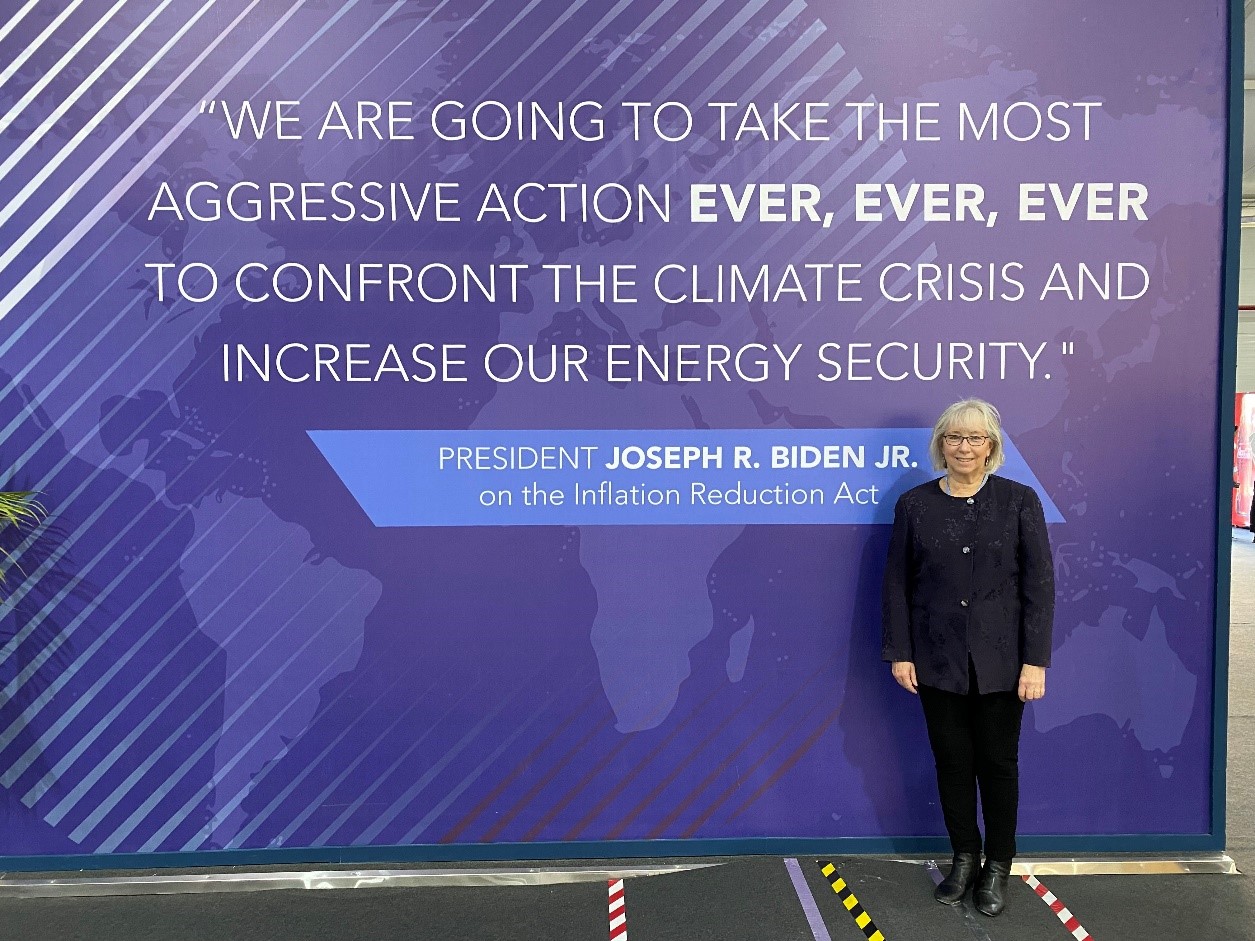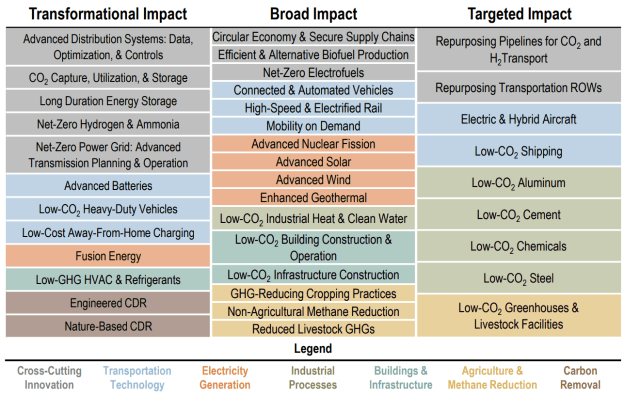Raising Ambition for a Rapid and Just Net-Zero Transition with Game-Changing Innovations
By Rachel Reolfi, OSTP Policy Assistant
Costa Samaras, OSTP Principal Assistant Director for Energy
Sally M. Benson, OSTP Deputy Director for Energy
Leaders from around the world traveled to the 27th United Nations Framework Convention on Climate Change’s Conference of the Parties (COP27) in Sharm El-Sheikh, Egypt, because they know that the urgency of the climate crisis requires sweeping global action on climate change. COP27 was an opportunity for the White House Office of Science and Technology Policy (OSTP) to advance innovation for climate mitigation and adaptation, including scaling-up nature-based solutions, elevating Indigenous Knowledge, highlighting the ocean as a climate solution, and accelerating net-zero energy innovation to meet our climate goals. The science is clear: to help meet our individual and collective climate commitments, the energy system fueling our society must be transformed in a period of less than 30 years – and the Biden-Harris Administration is helping to lead that fight with clear action.
Reducing greenhouse gas (GHG) emissions from the entire energy system to net-zero is an unprecedented challenge. Energy is deeply embedded in our physical infrastructure, economy, and way of life – it is the lights in our homes, our daily commute, the food that we eat, and so much more. Throughout history, there has also been significant inequity in how energy benefits and burdens are distributed, with disadvantaged communities having the least energy access while also bearing the brunt of environmental harm. Now is time to come together and raise the ambition around what it will take to address these challenges.
Maximizing the speed and effectiveness of the energy transition across economic sectors and geographies will require a systems approach. We must strategically accelerate net-zero technology investments, ensure integration across the energy system, and achieve multiple objectives such as improving supply chains, enhancing energy security and resilience, and advancing equitable energy access. This systems-thinking approach is the backbone of the recent work by OSTP on a national approach to identify, prioritize, and accelerate innovation in emerging net-zero technologies needed to meet U.S. climate goals.
On November 4, the Biden-Harris Administration announced the Net-Zero Game Changers Initiative, led by OSTP, the White House Climate Policy Office, and the Office of Management and Budget. The Initiative is a historic whole-of-government effort to develop clean energy technologies that will get us to net-zero by 2050 while ensuring these innovations provide transformational benefits to all Americans. At COP27, OSTP’s Sally Benson discussed the Net-Zero Game Changers Initiative – including the need for systems thinking and considering multiple objectives when advancing new technologies – on a panel titled Science Advice for a Successful Energy Transition.

Through the Net-Zero Game Changers Initiative, the Biden-Harris Administration developed the first multi-objective framework to guide U.S. Federal net-zero technology priorities. In identifying the game-changing technologies that can help reach net-zero faster, the early stage of development of these technologies provides a unique opportunity to be intentional and inclusive to achieve multiple objectives. When selecting technologies to prioritize, we also considered potential benefits and challenges related to the environment, equity and justice, the economy, and security and reliability. Considering these outcomes early in the development cycle can guide the creation of a robust portfolio of climate solutions that have the broad support needed to sustain the energy transition.

Assessing technologies across all of the objectives above provides a comprehensive picture of what is at stake and where we can make major advances now. In our new report on U.S. Innovation to Meet 2050 Climate Goals, we characterized game-changing net-zero technologies across economic sectors as Transformational, Broad, or Targeted, based on their prospective impacts across multiple objectives as described below.
- Transformational Impact: These innovations have the largest system-wide benefits and can lead to major advances in emissions reductions, environmental quality, justice and equity, economic opportunities, and security and reliability.
- Broad Impact: These innovations have benefits for one or more sectors of the economy and can lead to advances in several objectives.
- Targeted Impact: These innovations have benefits for specific subsectors of the economy.
This categorization does not imply that broad and targeted technologies are less important for the energy transition than transformational technologies. Rather, they fulfill an important but more limited role in meeting our climate goals. The urgency of the climate crisis requires a full portfolio of solutions to ensure success.

See the White House report on U.S. Innovation to Meet 2050 Climate Goals for more details.
This analysis helped inform the Biden-Harris Administration’s selection of five initial focus areas to jump-start the Net-Zero Game Changers Initiative:
- Low-GHG building heating and cooling;
- Net-zero aviation;
- Net-zero power grid and electrification;
- Industrial products and fuels for a net-zero, circular economy; and
- Fusion energy.
With inclusive and intentional innovation, these initial five priorities can help propel the United States and countries around the world towards an affordable, equitable, net-zero energy system. Addressing the climate crisis requires not only implementing the commitments and goals the United States and countries around the world have already made, but raising our collective ambition on climate action. Over the next three decades, innovation can create entire new industries and rebuild energy systems in ways that achieve multiple societal goals – such as reducing environmental harm, promoting energy justice, creating good-paying jobs, and strengthening energy security. Using a multi-objective evaluation framework – like the one used here – can maximize the benefits of public and private sector investments in new energy technologies and promote durable support for the energy transition.
###

